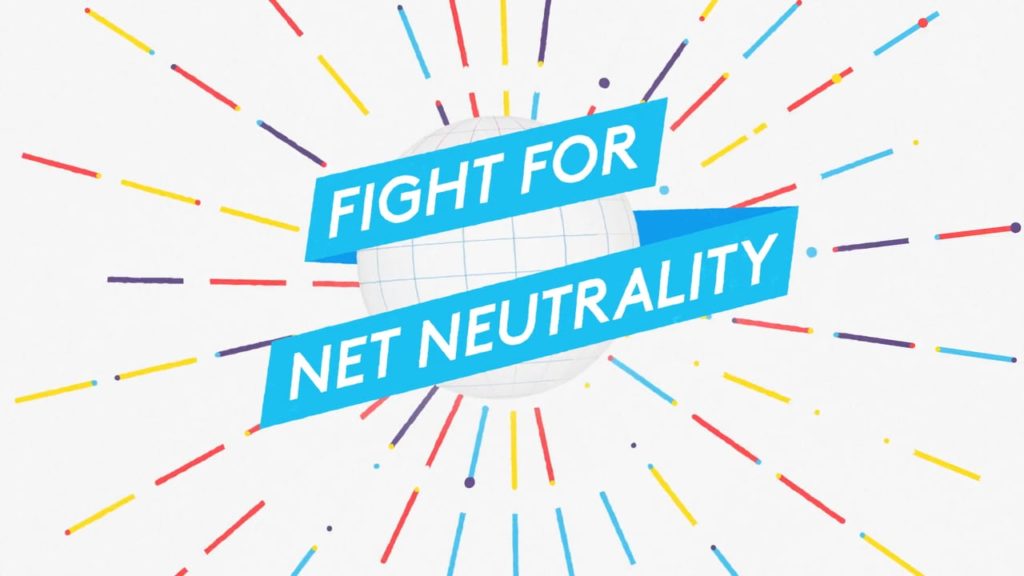Today’s release of the Net Neutrality implementation guidelines by the Body of European Regulators of Electronic Communication (BEREC) marks the culmination of three years of policy, advocacy, and tech work on Net Neutrality in the EU. We are very happy to say the end result is just about perfect.
We have worked very closely with a number of civil society groups in the EU, and with you — our community — to get here.
This is to say: Thank you, internet! You spoke out, and you got results.
——-
What happened and what did we achieve?
In September 2013, the EU Commission advanced a long-awaited proposal for a Net Neutrality law in the EU: the Telecoms Single Market Regulation (TSM). But there was a problem: the proposal would have allowed discriminatory treatment of internet traffic and the creation of slow and fast lanes for the internet — the opposite of Net Neutrality.
April 2014, after intense work and a first successful campaign with the SavetheInternet.eu coalition, the EU Parliament changed the text of the TSM to include a binding definition of Net Neutrality and close all loopholes that would have enabled network discrimination. However, the rules on enforcement are loose.
April 2015, the EU member states adopt a version of the TSM that includes even more loopholes than the text from the European Commission, and aims to allow zero rating.
July 2015, the three institutions agree on a final text that defines Net Neutrality without ever using the word. It is aimed at protecting users’ rights, does not have obvious loopholes, and has strong enforcement. Yet its vagueness could enable discrimination. BEREC is tasked with clarifying the rules and developing guidelines for how they can be interpreted and implemented. This outcome is not perfect, yet with two institutions against strong Net Neutrality, it is quite positive.
November 2015, the EU officially adopts the TSM.
June 2016, BEREC presents draft guidelines that are robust and bring clarity to the text. Sub-internet offers are banned and the rules are user-centric. But we argue that there should be further clarity to ensure that:
- Treatment of specialised services that are not delivered over the internet — such as connected car — do not impact internet users’ quality of service
- Traffic management is application-agnostic
- Zero rating is banned
June – July 2016: BEREC holds public consultation. There were more than 500.000 responses — an historic number for a consultation in the EU!
August 30: Publication and entry in force of the revised guidelines. BEREC addressed most of our concerns in the final version of the guidelines, and it is well in line with its own enduring position on Net Neutrality. We have only one remaining concern: the ‘case by case’ approach to zero rating offers. While BEREC has created a robust set of criteria for zero rating offers to avoid discrimination, the fact that there will be a case-by-case approach may mean that the EU will be fragmented when it comes to protecting internet users’ right to receive and impart information.
What now?
Now that we have the implementation guidelines, it is up to the national regulatory bodies to make sure they are implemented correctly. We will be keeping a close eye on implementation, and continue working with all our European partners to ensure the hard work put into the Net Neutrality guidelines is respected and everyone is able to enjoy its protections.
———————
Here is an overview of our analysis and posts since August 2013. The titles are quite reflective of the roller-coaster that this campaign has been:
July 2013: Ending network discrimination in the EU
August 2013: Leaked draft legislation reveals EU telecom regulations lack promised Network Neutrality provisions
September 2013: Commission proposal fails to deliver promise of Net Neutrality
November 2013: Access Now opinion on the TSM
December 2013: Q&A on traffic management in the TSM
December 2013: Eight steps to an open internet
December 2013: Specialised services – How to get it right
December 2013: Net Neutrality in the EU: Update and state of play on TSM Regulation
January 2014: First two votes on Net Neutrality: some sweet, some sour – we’ve got a long road ahead
January 2014: Third European vote on the telecom single market – one more step towards Net Neutrality
February 2014: Fourth vote on the telecom single market: a strong call for Net Neutrality in Europe
February 2014: A bag of tricks postpones the EU vote on Net Neutrality
March 2014: European Telecoms Single Market: A false promise for Net Neutrality?
March 2014: A missed opportunity for Net Neutrality in Europe
April 2014: The European Parliament takes important step to enshrine Net Neutrality into law
July 2014: Access Now and EDRi’s analysis of the Italian Presidency proposal
March 2015: Latest Net Neutrality proposal in the EU: a wolf in sheep’s clothing?
March 2015: Net Neutrality Battle in Europe Far from Over
April 2015: European citizens have spoken out, and it’s time for the EU to pass Net Neutrality
May 2015: Urgent – EU member states are pressuring the European Parliament to sell out on Net Neutrality
June 2015: Net Neutrality – building on success
July 2015: Major uncertainties remain as EU takes timid steps towards Net Neutrality
October 2015: Telecoms Single Market may — or may not — bring real Net Neutrality to Europe
October 2015: The EU Parliament adopts ambiguous Net Neutrality legislation
December 2015: Yes, there’s still a chance for Net Neutrality in Europe
December 2015: Rekindling Net Neutrality: Our meeting with EU telecoms regulators
December 2015: Access Now submission to BEREC Stakeholder meeting
June 2016: Zero rating: a global threat to the open internet
July 2016: Access Now’s submission on the draft BEREC guidelines
July 2016: BEREC is closing its consultation on Net Neutrality. Did we save the internet?
